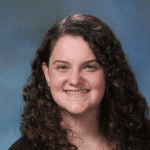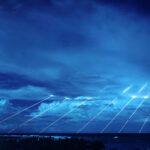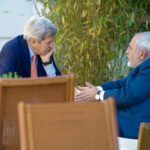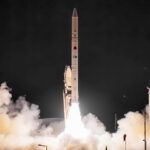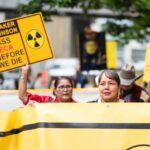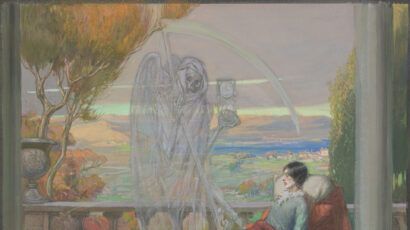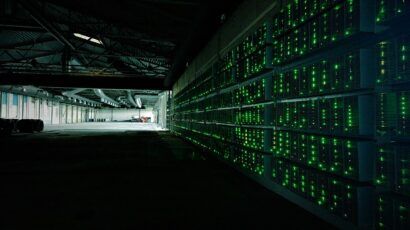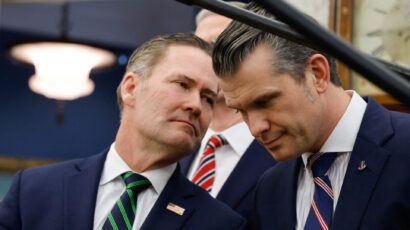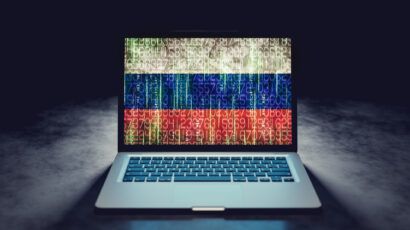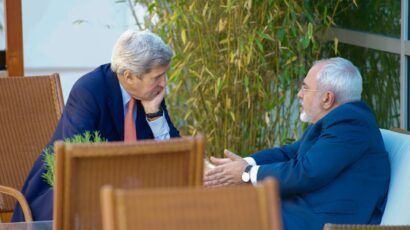Virtual Program: The war in Ukraine and its implications for our nuclear future
By Halley Posner | April 12, 2022
Watch the Bulletin virtual program “The war in Ukraine and its implications for our nuclear future” featuring Francesca Giovannini, Pavel Podvig, and Manpreet Sethi in conversation with Lauren Sukin.
These experts addressed questions about nuclear risk, the future of nuclear arms control, and much more. Watch a recording of the April 11 program above.
Read the read the Bulletin’s breaking Ukraine coverage here and listen to all of our virtual programs.
Francesca Giovannini is the executive director of the Project on Managing the Atom at the Harvard Kennedy School’s Belfer Center for Science & International Affairs. In addition, she is a non-residential fellow at the Centre for International Security and Cooperation at Stanford University. Giovannini served as Strategy and Policy Officer to the Executive Secretary of the Comprehensive Nuclear Test Ban Treaty Organization (CTBTO), based in Vienna. Prior to her international appointment, Ms. Giovannini served for five years at the American Academy of Arts and Sciences in Boston as director of the Research Program on Global Security and International Affairs.
Pavel Podvig is an independent analyst based in Geneva, where he runs his research project, “Russian Nuclear Forces.” He is also a Senior Researcher at the UN Institute for Disarmament Research and a researcher with the Program on Science and Global Security at Princeton University. The American Physical Society awarded Podvig the Leo Szilard Lectureship Award of 2008 (with Anatoli Diakov). His current research focuses on the Russian strategic forces and nuclear weapons complex, as well as technical and political aspects of nuclear nonproliferation, disarmament, missile defense, and U.S.-Russian arms control process. Pavel Podvig is a member of the International Panel on Fissile Materials. He has a physics degree from MIPT and PhD in political science from the Moscow Institute of World Economy and International Relations.
Manpreet Sethi is a Distinguished Fellow, Centre for Air Power Studies, New Delhi, heads its programme on nuclear security. Recipient of K Subrahmanyam award in 2014 and Commendation by Chief of Air Staff in 2020. Completing her doctorate in 1997, she has since worked on nuclear energy, strategy, arms control & disarmament. She is author/co-author/editor of eight books and over 120 papers. She lectures regularly at National Defence College and other establishments of Indian Armed Forces, Police, Foreign Services, and Universities. Sethi regularly participates at nuclear policy conferences, Track II initiatives and UNIDIR. She was Member, Prime Minister’s Informal Group on Disarmament in 2012. Currently, she is on Board of Directors of Asia Pacific Leadership Network (APLN), Consultant, Nuclear Abolition Forum, and Co-chair, Women in Nuclear – India.
Lauren Sukin is a MacArthur Nuclear Security Postdoctoral Fellow at Stanford University’s Center for International Security and Cooperation and an incoming Assistant Professor of International Relations at the London School of Economics and Political Science. Her research examines the role of nuclear weapons in alliances, crisis politics, and public opinion. She holds a PhD and MA in political science from Stanford University and ABs in political science and literary arts from Brown University. Sukin is a member of the Bulletin Editorial Fellows Program.
Together, we make the world safer.
The Bulletin elevates expert voices above the noise. But as an independent nonprofit organization, our operations depend on the support of readers like you. Help us continue to deliver quality journalism that holds leaders accountable. Your support of our work at any level is important. In return, we promise our coverage will be understandable, influential, vigilant, solution-oriented, and fair-minded. Together we can make a difference.
Keywords: Ukraine, Virtual Programs
Topics: Nuclear Risk
